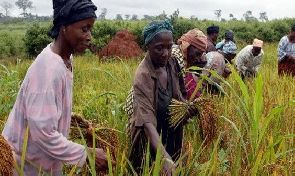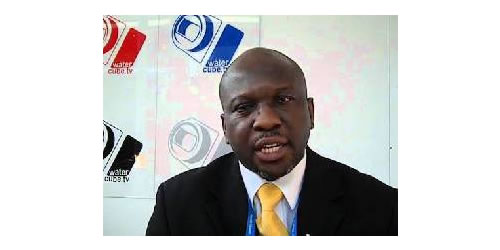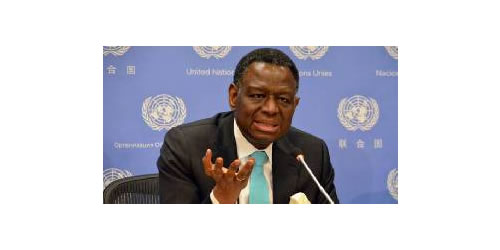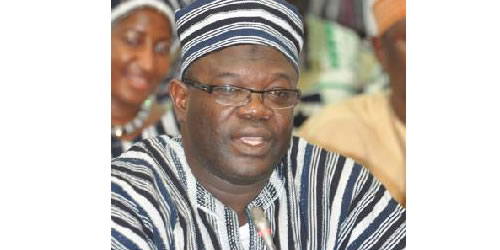$175m palm oil imported in 2014
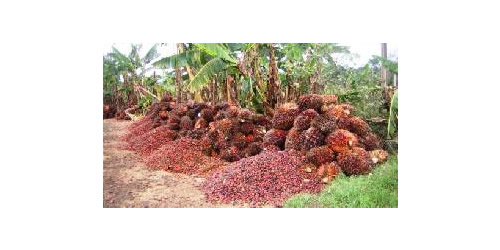
Ghana last year imported 250,000 metric tonnes of palm oil from South East Asia at a cost of over $175m.
Last year, the country produced 135,000 metric tonnes of palm oil, out of the 370,000 metric tonnes of palm oil demand.
This is happening at a time when the cedi is depreciating fast due to high import volumes.
This month, one metric tonne of palm oil is sold for $600, which is twice the price of one tonne of crude oil.
Last year, the price of palm oil averaged between $700 and $800. Fossil fuels (crude oil) have diminishing returns while palm oil is sustainable.
Sadly, the deficit is expected to rise in the coming years as a well-crafted 15-year plan to close the deficit and bring Ghana to import parity is gathering dust at the Ministry of Food and Agriculture (MOFA).
Implementation of the plan, developed by the Oil Palm Development Association of Ghana (OPDAG) with the support of the then Agric Minister, Mr Kwesi Ahwoi, who was very interested in improving the fortunes of the sector, was supposed to commence in 2012 but was abandoned when Mr Ahwoi was reshuffled.
When contacted, Mr Samuel Awonnea Avaala, President of the Oil Palm Development Association of Ghana (OPDAG), said palm oil is priced internationally on the world market just like crude oil.
According to him, the production is in high demand locally by Fast Moving Consumer Goods (FMCG) such as Wilmar, Unilever and Nestle to produce all kinds of consumables such as soap.
He noted that small-scale palm oil producers accounted for about 80% of the 135,000 metric tonnes produced locally.
He explained that the palm oil produced by small-scale producers have been used for domestic consumption as the moisture content is high, coupled with free fatty acid contents.
Mr Avaala said because industries store the palm oil for some period, the high moisture free fatty acid contents mean they cannot use the produce of the small-scale producers.
He stressed that oil palm, which earned Ghana 75% of export revenue in the 19th century, needs a board modelled along the lines of Ghana Cocoa Board to champion the interest of the sector.
In addition, he called for special financial vehicles to support the industry, as bank loans could not help in oil palm development, which takes years before benefits can be reaped.
He called for the creation of land banks as the estate plantations had to compete for the limited out-grower fruits over a relatively wide area of coverage, with the attendant high transportation and logistical costs.
“Land acquisition for expansion of the large-scale estate plantations has been a mirage due to the cumbersome land tenure system,” he said.
Mr Avaala stated that oil palm, which takes at least 25 years before it is cut down due to height and low productivity and new ones replanted, provides sustainable employment.
In a related development, OPDAG has called on stakeholders in the palm oil sector to come together for a broader consultation.
Mr Avaala said the consultation was on key issues affecting the industry, such as the Import Adjustment Tax (IAT) on Crude Palm Oil, to adopt a common position for the greater good of the entire value chain.
He said, “Some actors in the palm oil value chain are calling for the introduction of the tax on imported crude palm oil now, at a time when Ghana is a net importer of the raw material.”
He said as a result of the call, a meeting was convened, and a common position on the tax was taken, which had been submitted to the Ministry of Finance.
The president said the position was that in the interest of the industry, the tax regime for imported palm oil in the immediate term should remain same.
He said if local manufacturing became more expensive due to increased raw material cost as a result of taxation, imports would take the industry by storm, and the already-struggling industry would suffer even more.
He said the association was re-launched with the mandate to seek and advocate for the total health and sustainable development of the entire palm oil industry.
“I am, therefore, calling on stakeholders to our first post-re-launch stakeholder forum at the conference centre of the Noguchi Memorial Institute for Medical Research, Legon, on the theme ‘Harnessing the full potential of the oil palm industry in Ghana,’ he added.
He said at the forum, members would come out with a communiqué on all matters relevant to the sustainable development of the oil palm industry in Ghana.
He said there was the need to institute a fair and transparent pricing mechanism for the fresh fruit bunches produced by the small-scale farmers.
Source: The Finder

